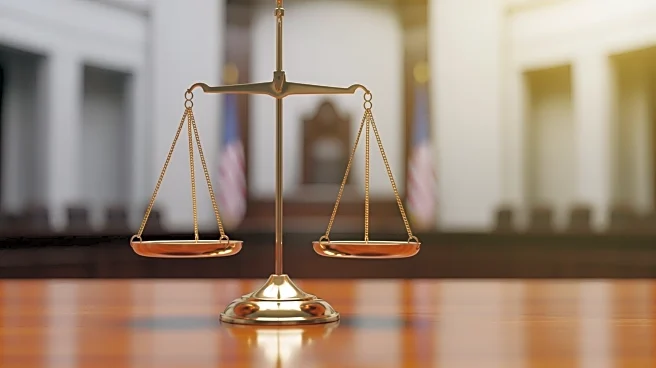What's Happening?
Rep. Jerrold Nadler, a veteran Democratic congressman from New York, has announced he will not seek re-election next year, ending his 34-year tenure in the House of Representatives. Nadler, who has been a prominent figure in Manhattan politics, cited the need for generational change within the Democratic Party as a key reason for his decision. He suggested that observing former President Joe Biden's decline reinforced the necessity for younger leadership. Nadler's retirement opens up his seat to potential candidates, including Empire State Assemblyman Micah Lasher and New York City Councilman Erik Bottcher. Former New York City Comptroller Scott Stringer is also considered a serious contender. Nadler has not publicly endorsed a successor but reportedly plans to support Lasher, his former aide, in the upcoming election.
Why It's Important?
Nadler's retirement marks a significant shift in the Democratic Party, particularly in New York, where he has been an influential figure. His departure could lead to a competitive race for his seat, potentially reshaping the political landscape in Manhattan. The call for generational change reflects broader discussions within the Democratic Party about leadership and strategy, especially in the face of challenges posed by figures like President Trump. Nadler's decision may encourage other senior Democrats to consider stepping aside for younger leaders, impacting party dynamics and policy directions. His legacy includes leading the Judiciary Committee during the impeachments of President Trump, highlighting his role in significant political events.
What's Next?
With Nadler's seat now open, there is expected to be considerable interest from various candidates, leading to a potentially crowded Democratic primary. The race will likely attract attention from political observers and stakeholders, given Nadler's long-standing influence and the strategic importance of his district. As the Democratic Party navigates this transition, discussions around generational change and leadership will continue to be pivotal. The outcome of the primary could signal shifts in party priorities and strategies, especially in addressing issues related to President Trump and broader political challenges.
Beyond the Headlines
Nadler's retirement raises questions about the future direction of the Democratic Party, particularly in terms of addressing age and health concerns among its leadership. His decision underscores the ongoing debate about the balance between experience and innovation in political leadership. The generational change he advocates may lead to new policy approaches and strategies, potentially affecting legislative priorities and party unity. As the party adapts to these changes, the implications for its long-term vision and electoral success will be closely watched.








